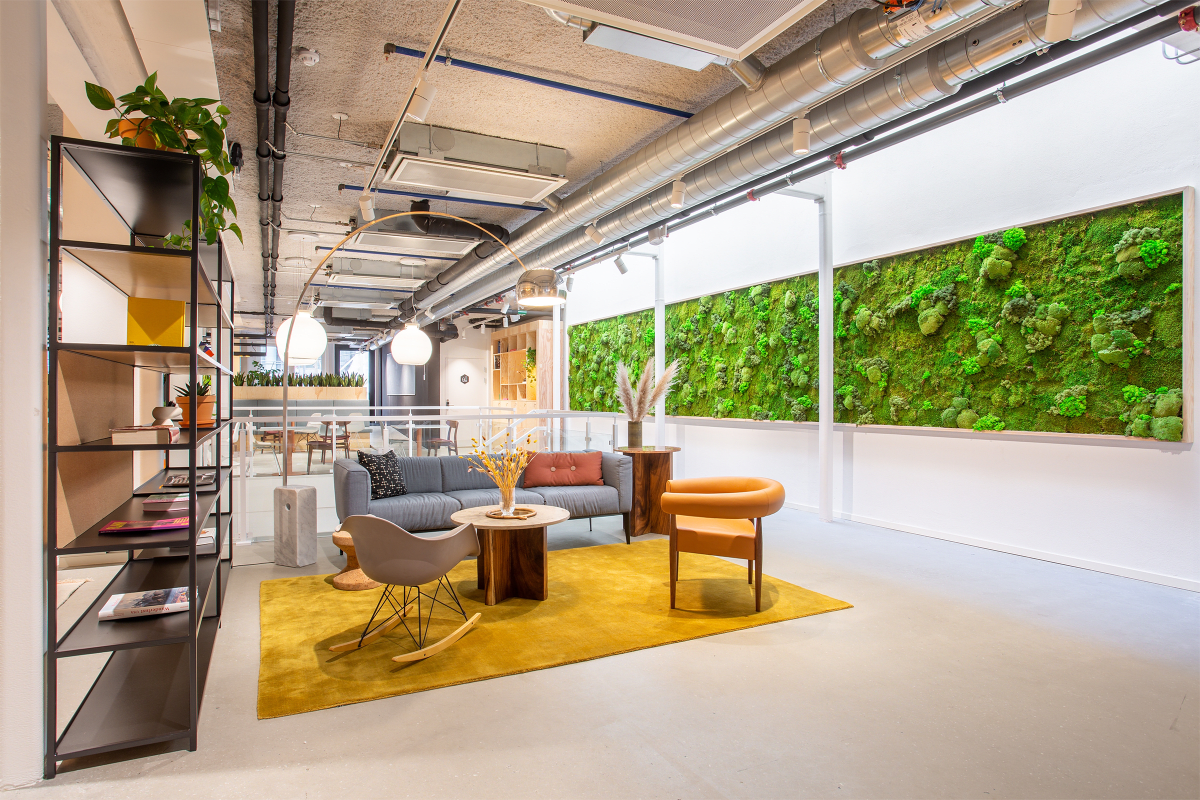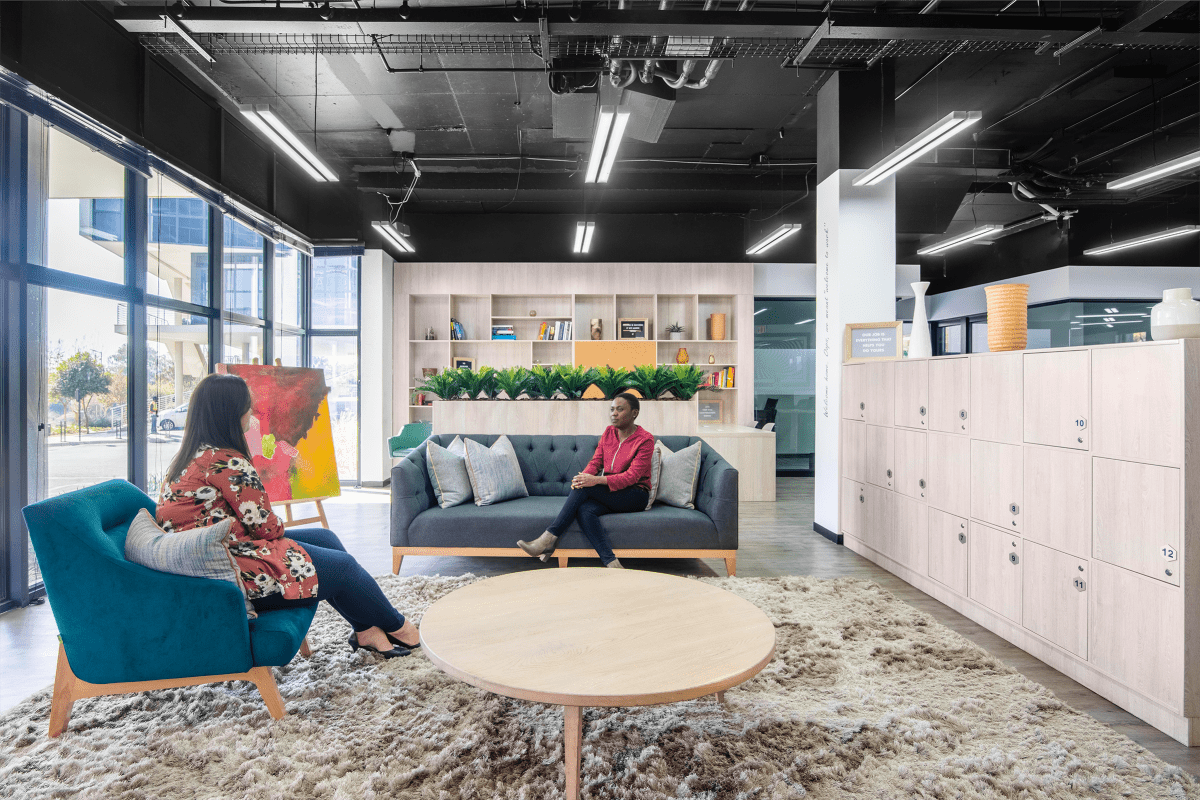“The future of work is with us today,” says IWG’s CEO. “Embracing hybrid ways of working is not just convenient, but sensible too.” Here, he shares five views on the world of work this year
“It would be easy to assume that the shift we’re seeing in the way people work, away from a shared physical environment to wherever is most convenient and productive, has been driven entirely by the Covid-19 pandemic,” said Mark Dixon, IWG CEO, recently in an interview for fDi Intelligence.
“But that assumption would be wrong,” he added. “The pandemic has certainly had a dramatic and permanent effect, but it’s merely accelerated a trend that’s been underway for several years, as organisations progressively move to a ‘hybrid’ way of working: at home, a local office and occasionally at corporate HQ.”
Below, Dixon shares his views on how the world of work is likely to develop over the next 12 months, from the inescapable role of technology to the unexpected, but welcome, environment benefits of a wholesale shift.
It will be tech-driven
The shift in the way people work is not just down to the pandemic, says Dixon. He says that the real catalyst is the digital revolution, which started in the 1970s with the launch of the first personal computers. “Today, herding people to the office is looking increasingly obsolete, expensive and inconvenient. Why should workers go to the effort and expense of dragging themselves into work to spend the day working on a device that they have brought with them, and will return home with at the end of the day?”
Home will only be one of the places we work
Dixon acknowledges the surveys that regularly find remote work is one of the most sought-after perks among employees, and he also points to a study by the London School of Economics showing that many of the positive effects of home-working can wane over time. Ultimately, it suggested, home-workers can even come to resent their employers and feel less loyalty towards them.
“This is because people naturally come to miss the buzz of human interaction, the creative energy and shared spirit of inspiration and innovation that comes from bouncing ideas around, face-to-face, with other people,” he explains.
“This point has recently been powerfully highlighted by Andy Haldane, chief economist at the Bank of England. Being a home-worker, or a digital nomad, doesn’t suit everybody all the time.”
It will happen within a hybrid model
The hybrid ‘hub-and-spoke’ model of working is emerging as the preferred way ahead for many businesses, with a significant boost to uptake during the pandemic, says Dixon. As its name suggests, this involves more than one solution working in tandem.
First, people can work primarily at home, enabled from the centre by the technology they need to do their jobs and supported by regular communication, guidance and virtual meetings.
Second, when they feel the walls of home closing in, or need to be part of a physical meeting, they can travel a short distance to a local office or business centre close to where they live so they can interact with others.
“For several years, we have seen companies across the world begin to shift their operations to the suburbs and the towns where their employees actually live, helping to rebalance the economy by providing more opportunities for local communities and service businesses,” says Dixon.
“As a result, during the past two years in the UK alone, IWG has opened almost all its new centres in non-city centre environments. Today, we are seeing enquiries and demand for suburban locations across our brands, including Regus and Spaces, increase exponentially around the world.”
He adds: “This is not to say that there’s no role for the prestigious head office. This is still important in terms of corporate identity, learning and cohesion. It provides somewhere for people to congregate when needed, giving them a focus for the emotional, almost ‘tribal’, link between an employer and its workforce. This can be a priceless cultural asset for a business, enabling people to imbibe the shared company spirit that sets them apart from other organisations.”
It’s a win-win for employers and employees
“The hybrid model is delivering spectacular benefits for employees and employers alike,” declares Dixon. “Team members gain better mental health and reduced costs through not having to travel into city centres, along with greater career opportunities closer to home.”
And it gives companies the financial flexibility to invest in their staff and in growing the business, instead of the buildings from which they operate. “In our experience, businesses that opt for a fully equipped workspace, with everything from furniture to super-fast Wi-Fi provided, often see an immediate halving of their property costs, releasing capital to invest in generating stakeholder value,” he says. “Having a base in local communities where people actually live also enables them to recruit better people, attracted by flexible working.”
“These are some of the reasons why, at IWG, we are aiming to expand our network, mostly by franchise, to provide a flexible workspace in every village, town and city,” he concludes.
And it has environmental benefits
There is one other very important reason why the hybrid property model has been gaining so much support in recent years, and that is to do with the ESG (environmental, social and corporate governance) agenda. Explains Dixon: “Companies of all sizes see addressing the need for their people to commute to work as the single greatest contribution they can make to reducing their carbon footprint. They understand that by bringing work into the home, and into the heart of communities, they will immediately and significantly reduce the weight of traffic on roads and in cities across the world.”
A version of this interview originally appeared in fDi Intelligence in December, 2020
IWG has been helping businesses like yours with corporate flexspace solutions for the last 30 years. Find out how we can support you or learn more about IWG’s franchising partnerships.






